Travel is a way of life for us, but we know that’s not the case for everyone. Each part of the process – from researching where to go to adjusting to life back at home post-vacation – can present challenges. Travel stress is a very real phenomenon.
However, traveling can also bring immense joy. It can open your eyes, increase your curiosity, and even help you uncover new passions.
Below are several common reasons why traveling may be stressful, coupled with solutions we recommend for combating those stressors. In this post, we’re relying on our own experience as well as tried-and-true tips we’ve heard from other travelers.
We hope our advice on travel stress helps assuage your fears so you can get out and explore!
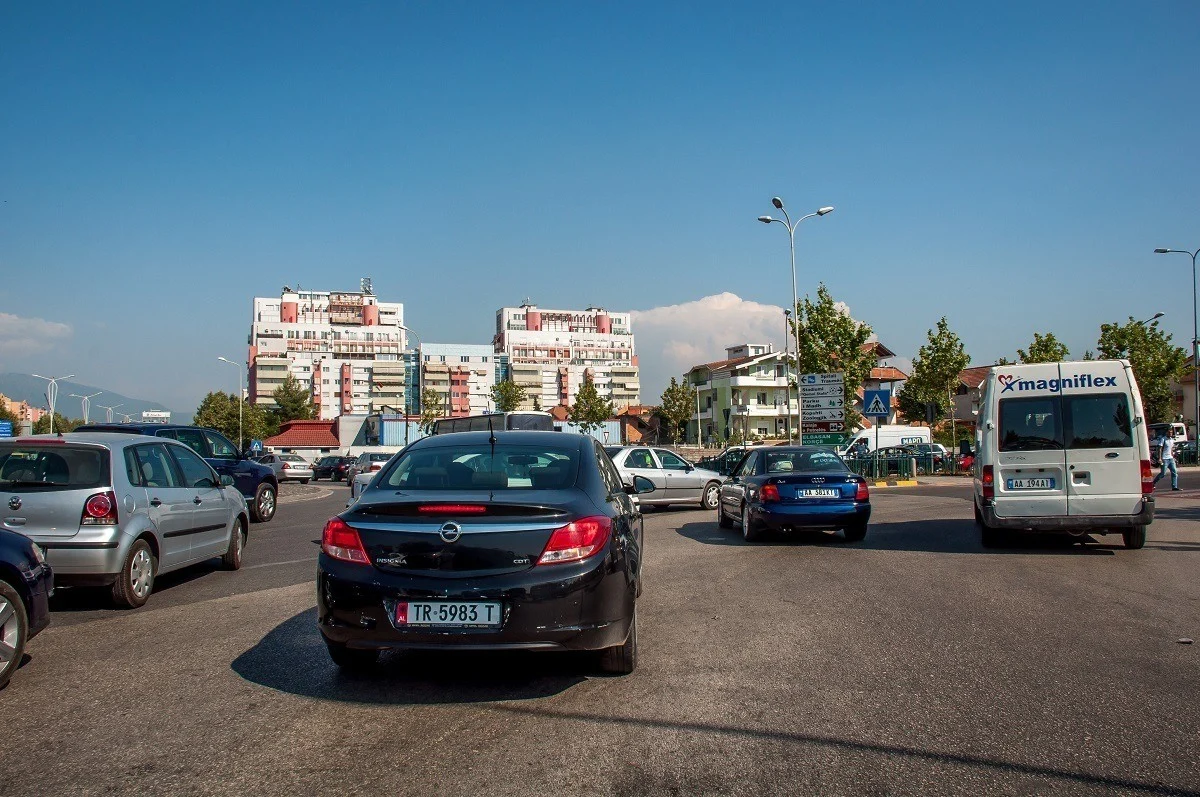
Top 10 Tips to Deal with Travel Stress
Make Travel Planning Easier
Let’s say you have your ideal travel destination in mind, or you have a trip you must take on the horizon. It can seem overwhelming to think through all you have to do to prepare – from navigating things like airline tickets or road trip routes, to finding a hotel or an Airbnb, to planning how you’ll spend your time.
However, anticipating a trip is a large part of the process that makes traveling enjoyable. According to a study published in the journal Applied Research in Quality of Life, just planning your trip can bring you more happiness than actually taking it.
Here are a few tips to ease the stress of planning your travel:
Read guidebooks and travel blogs. Once you settle on where you’re going, use Amazon or your local library to find guidebooks written by the pros. We’ve used Lonely Planet and Rick Steves for several of our trips. Of course, we’re big fans of travel blogs, too! Hopefully we have some resources for that will help you.
Use Kayak or another price comparison website. To ensure you get the lowest fare on flights, hotels, or rental cars, check out Kayak, Expedia, or a similar aggregator of travel prices. If you’re booking a trip last-minute, consider Hotel Tonight which offers reasonable prices on rooms available as soon as that night. Otherwise, we usually use Booking.com as they have a wide selection and, in our experience, the best prices.
Break planning into multiple steps. If your list of things to do seems insurmountable, break the process down and do one big thing a week to plan for your trip. For instance, week one you can tackle accommodations, and week two you can book your rental car. This will help you not get so overwhelmed and reduce your overall travel stress!
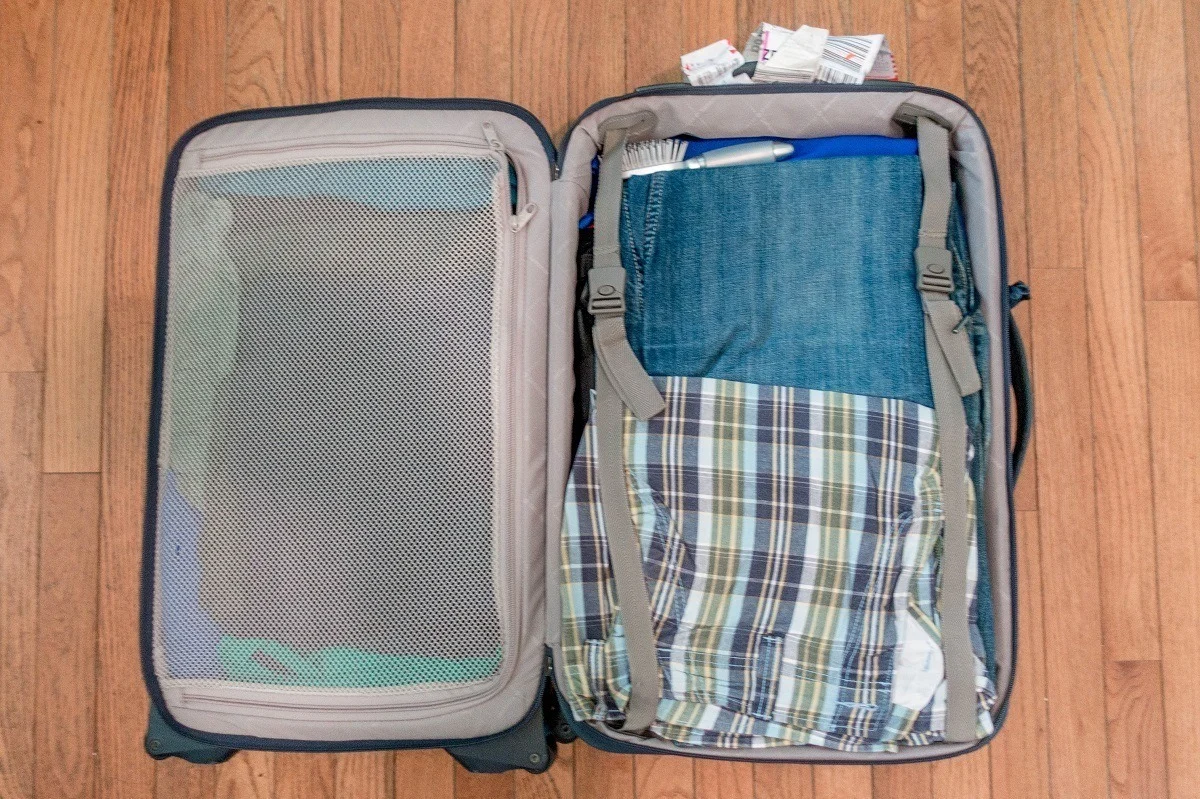
Simplify Packing
For some, getting out a suitcase and packing leads to creating new, interesting outfits they never wear at home. It can be tough to know where to start. Plus, if you’re packing for multiple people or different climates, it can certainly be stressful and take a lot of planning. But it’s not impossible!
Below are our best tips to taking the edge out of packing:
Start early. If you’re stressed about packing, don’t let procrastination get the best of you. Start the weekend before or at least a few days in advance. This will allow enough time to make sure you gather everything you need and provide a buffer in case you realize you need to make a last-minute purchase.
Make a list. Go old school and write a list out on paper or use Notes on your iPhone to help plan what you’ll need day by day.
Use packing cubes. If it’s space you’re worried about, packing cubes like these can help condense clothing and free up extra room in your suitcase.

Make a Budget
We get it: traveling makes your wallet lighter. Without some budgeting and forethought, it can be easy to rack up credit card debt or find that you need to foot the bill for unexpected expenses.
Research shows that money stress is a significant travel inhibitor; in fact, according to recent a study by Bankrate, many families avoid taking summer vacations altogether. Why? The two most common reasons were day-to-day bills and paying down debt.
To make your travel experience easier on your bottom line:
Cut back on discretionary spending in advance of your trip. This isn’t the most fun option, but it will help you prepare and potentially even build excitement for your trip because you’ll free up money to spend on fun experiences or souvenirs while you’re traveling.
Eat at home instead of at restaurants. For example, you can save big by having breakfast and lunch at home, or by replacing a fancy dinner reservation with a home-cooked meal. Who knows, you may even have a more memorable experience as you navigate a kitchen that’s not your own!
Automate your savings. My sister uses tools like Digit and Qapital. The former analyzes your spending and saves a little bit of money every day, while the latter syncs with your bank account and enables you to round purchases up to the nearest dollar so you can save the extra cents. She’s budgeted for discretionary income to use while traveling solely by using those two apps!
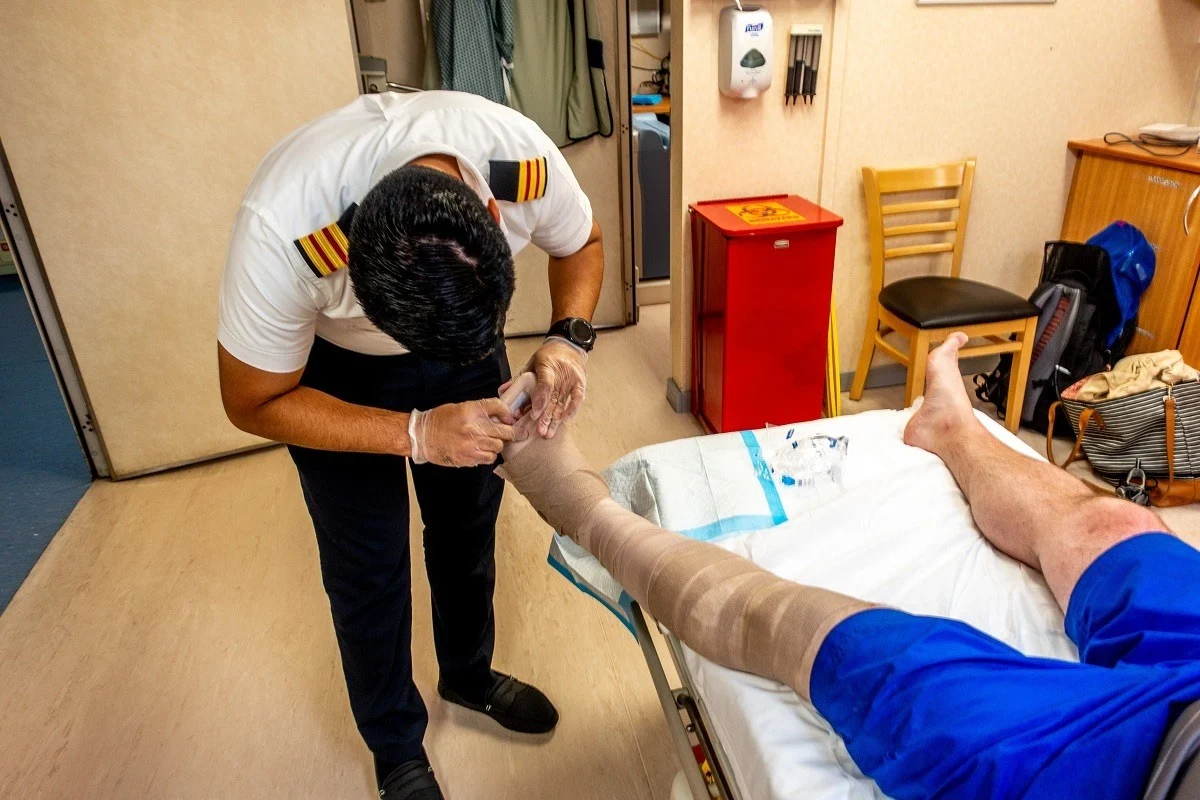
Have a Safety Plan
If your destination is plagued by violence, or if you’re just uneasy and worried about feeling safe, you’ll certainly feel travel anxiety. Likewise, worrying about falling ill while you’re on vacation is a legitimate fear.
No one wants either scenario, but with some forethought, you can come up with a plan to combat your fears:
Pay attention to travel advisories. You can find a list of travel advisories along with the dates they were updated on the State Department website.
Develop an emergency plan. Where can you seek medical treatment if you need it? What are emergency numbers you can program into your phone? Make sure you have contact information or know where the nearest hospital or doctors office is, and program ICE (in case of emergency) numbers into your phone.

Set Realistic Expectations
As mentioned above, often half the fun of traveling is the anticipation of the trip itself. As we plan, it can be easy to get carried away with romanticizing the destination.
But sometimes things happen that are out of our control: for example, let’s say it ends up raining every day of your Mexican Riviera getaway, or the museum you really wanted to visit is shut down. Or: perhaps you just don’t enjoy a part of the trip as much as you had envisioned.
While you don’t want to go in with low expectations, it is important to be realistic to minimize travel stress:
Plan for the unexpected. As you’re thinking through what your trip will be like, remind yourself that not everything will go as planned – and that’s okay. Do what you can to prepare. For example, pack an umbrella, plan a few back-up activities, bring some band-aids and first aid ointment, and try to rest your mind.
Remember that the things that go wrong don’t have to ruin your trip. It’s often those things we don’t plan for that make traveling more memorable.
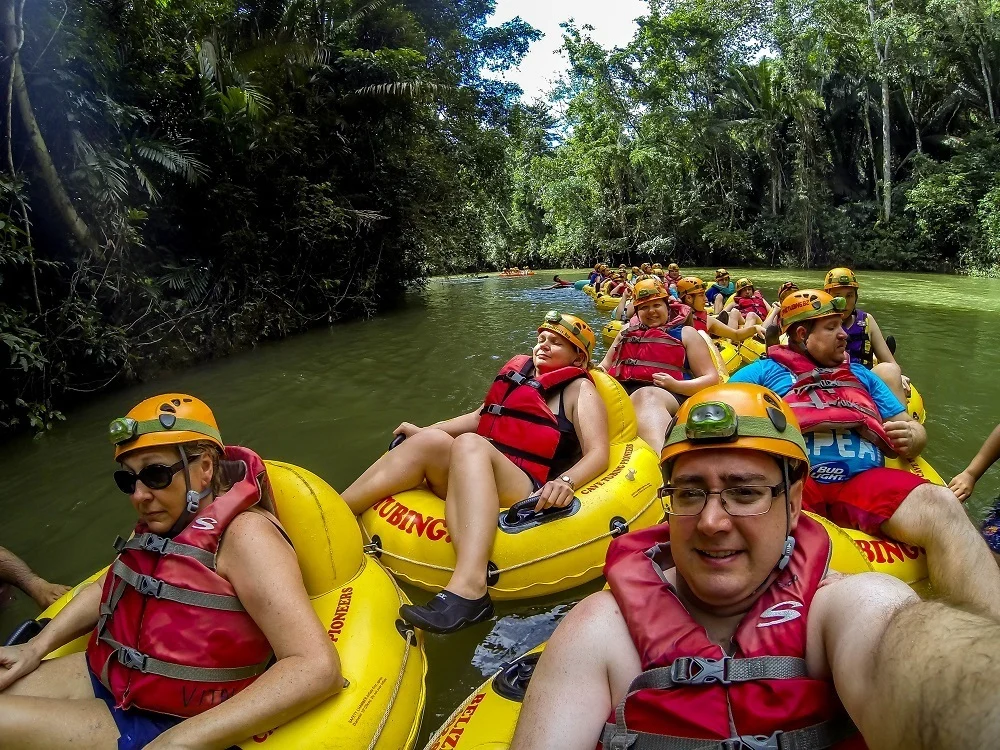
Communicate with Travel Companions
Unless you’re setting off on a solo journey, you’ll be with friends, family, coworkers or other travelers. And odds are low that you’ll all want to do exactly the same activities. Some in your group may be more active than others, for instance, or some may just have different interests.
To mitigate as many issues as you can in advance:
Ask your companions about their traveling style. Have an open discussion! Are they late sleepers? Do they want to eat out a lot? What are their main priorities for the trip?
Make a shared document or start a group email thread about everyone’s must-see things. Getting buy-in from everyone will help eliminate anyone feeling like they’re taking on the brunt of the planning, and it lets everyone have a voice.
Remember to stay flexible. Repeat that as many times as you need to!
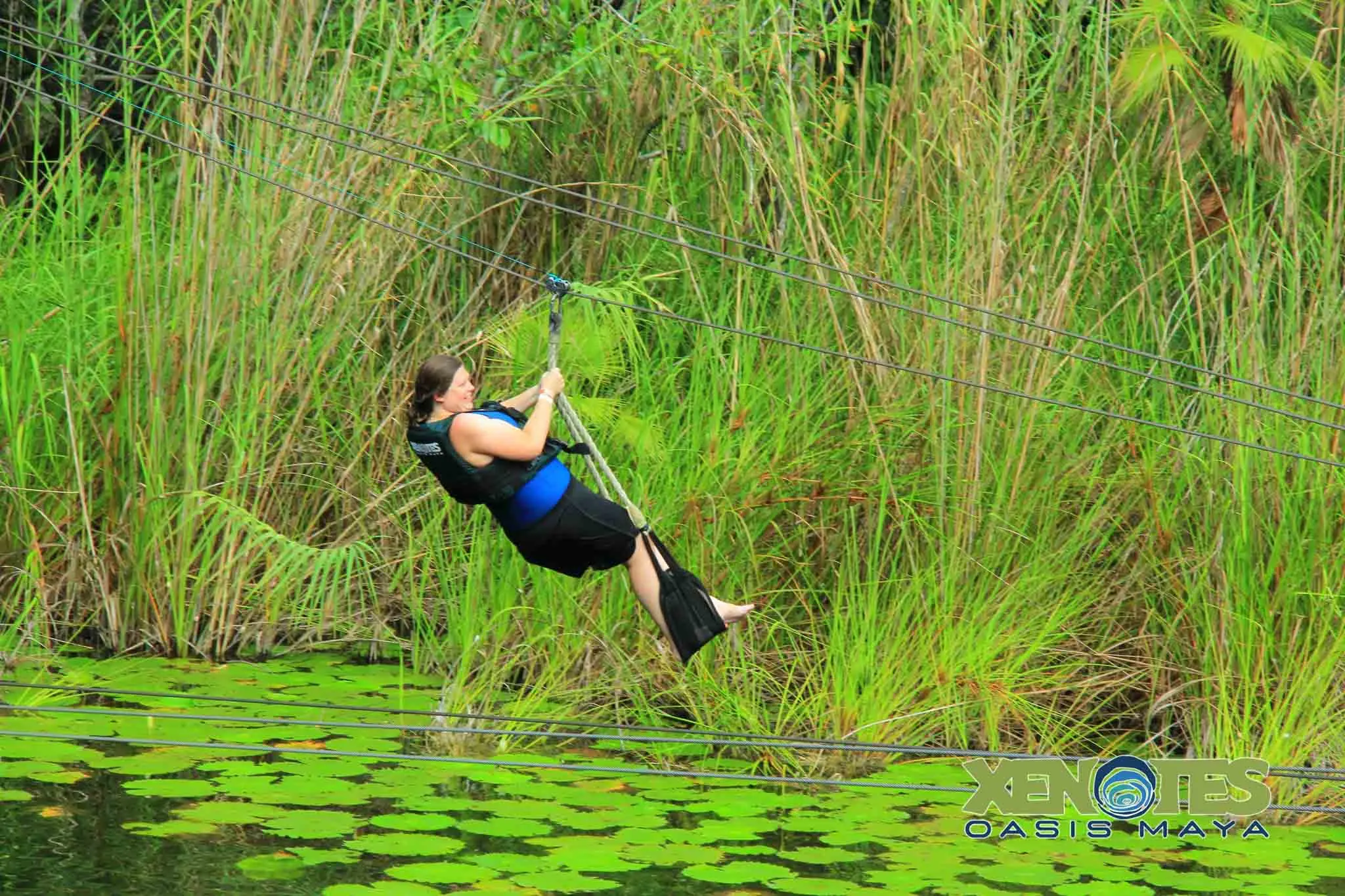
Embrace the Opportunities of Solo Travel
Many travelers are interested in hitting the road alone, and it certainly has its advantages. You can do what you want, you can unplug and enjoy the silence if you’d like, and you can clear your thoughts while taking in beautiful sights. However, solo travel can potentially feel lonely.
What to do to combat the fear of feeling lonely? Try the following:
Plan activities that involve other people. Research walking tours or consider a group food tour (we love Devour Tours!). At the very least, you’ll likely be able to make friends with the guide and get some good local recommendations. If you’re active, plan workout classes into your trip. There are numerous ways to get out and meet new people!
Indulge in what you truly love. Do you love reading? Bring as many books as possible so you can surround yourself in the world of written language. Is wine tasting you’re your style? Explore local wineries and strike up a conversation with other visitors – or the bartender. Staying focused on activities you enjoy will keep your spirits high and help you reconnect with your passions!
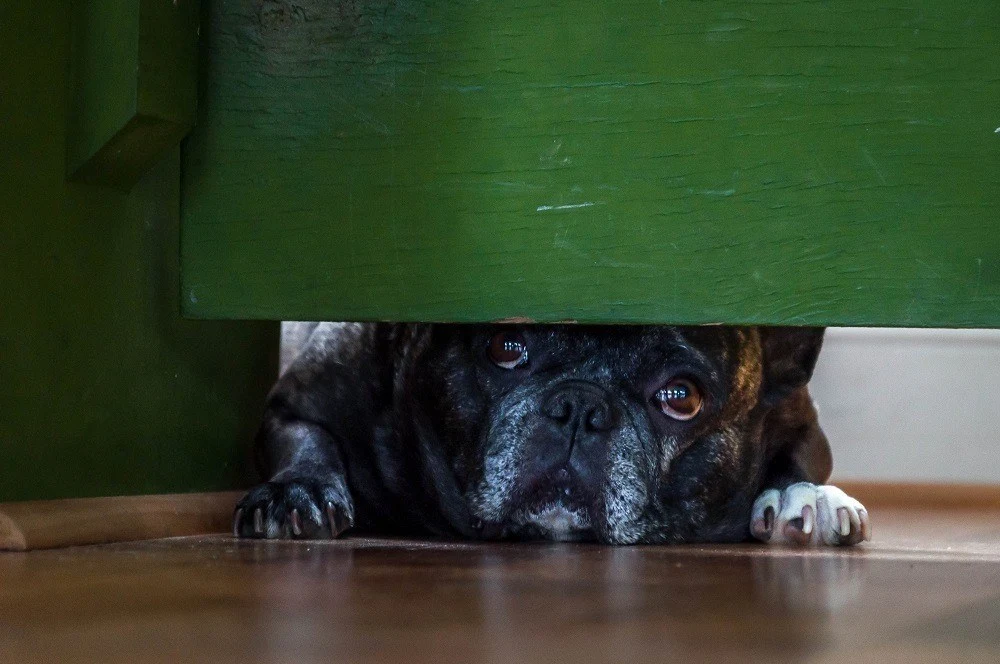
Plan for Being Away
A trip of any length requires you to sacrifice something from your usual routine. Perhaps you won’t be able to walk your dog every day, or you may have to miss a family obligation. Or maybe you’re just a worry wart and worry that you forgot to turn off your oven or close a window!
In order to have some peace of mind, here’s some advice:
Find two buddies. One should be a neighbor, and the other should be a close friend or family member. The neighbor can check on your house or apartment while you’re traveling and alleviate any concerns, and your friend or family member can keep tabs on you from afar and ensure you’re okay.
Start a list at least a week before you leave. Note all that you need to do or double check, and all that you’ll need help with while you’re gone. Include chores, house maintenance, pet care, etc., and review it before you head out the door for your trip. Make sure that you’ve communicated responsibilities for those looking after your home, and you’ll be able to rest easier.
Remember your travel time is finite and you’ll be back before you know it!

Make a Food Plan
If you have dietary restrictions or allergies, it can be difficult to imagine planning your meals in a different or foreign location. Likewise, if you’re simply an unadventurous eater, thinking about getting out of your comfort zone is nerve wracking.
Consider the following to help think through meals while you’re traveling:
Simple research can yield many options. Good news: many cities have restaurants that accommodate vegetarians and vegans, those who need to eat gluten-free, and more! Many wait staff are also happy to make adjustments to menu items. You don’t need to let dietary limitations contribute to travel stress!
Bring your own food. If you’re worried about going hungry or being displeased with cuisine at your destination, take control of the situation and pack a few things that you like to eat.

Prepare for Re-entry
For us, the worst part of a trip is the conclusion. Readjusting to the realities of everyday life after an amazing travel experience is hard! You may experience malaise as you go back to work or settle back into your routine.
To ease yourself back into reality, we recommend the following:
Clean your house before you leave on your trip. This will make coming home slightly more bearable – you won’t have to worry about vacuuming or tidying up.
Use a grocery delivery service to have food delivered the day you get home. Trying to meal plan after a vacation is no fun. Order groceries ahead of time so you can kick back and keep your tummy full while you deal with things like unpacking.
Start planning your next trip! You had to expect us to say that, right? Again, having something to look forward to will help take your mind off of the fact that your beloved previous trip is complete.

Do any of these common travel stress issues resonate with you? We’d love to hear from you! Leave us a comment and let us know what has worried you in the past and your best tips for how you’ve overcome it.
Lance Longwell is a travel writer and photographer who has published Travel Addicts since 2008, making it one of the oldest travel blogs. He is a life-long traveler, having visited all 50 of the United States by the time he graduated high school. Lance has continued his adventures by visiting 70 countries on 5 continents – all in search of the world’s perfect sausage. He’s a passionate foodie and enjoys hot springs and cultural oddities. When he’s not traveling (or writing about travel), you’ll find him photographing his hometown of Philadelphia.

Jack Caselles
Sunday 4th of December 2022
Wow! I love your words. Your points ring like a bell in my head. I started traveling when I was 5yrs. with my folks and when I was 14 was my first trip to Europe. Since then I have been back to Europe as a vagabond three times and with family and wife only at least 10 times. Now that we are older we have to contend with other problems stemming from aging. My wife used to march around with me and climb stairs and swim channels, but now she has developed a permanent mobility issue that does not allow her to walk more than a few steps. I would really appreciate some words of wisdom on how to get around with a mobility scooter or tours that accommodate the mobility impaired. We are planning a trip to Europe to celebrate our 56th anniversary in Paris in April 2023. Thanks for the great blog and for any help you can give to us and others who are experiencing physical issues.
Lance Longwell
Sunday 1st of January 2023
Thanks Jack. Sorry your wife has developed mobility issues. A few thoughts. Some cities have a reputation of being great for people with mobility issues (Rotterdam, Amsterdam, Berlin, etc). This includes accessible transit systems, curb ramps, etc. There are some companies that operate scooter-accessible tours in Europe, but we haven't used them (or know anyone who has), so are reluctant to offer recommendations. We're also wired to do things independently. If visiting Paris, things like the Catacombs would be impossible, but certainly walking along the Seine, a river cruise, the restaurants, etc. should all be possible. I don't remember if the Paris Metro is accessible.
Sara
Tuesday 5th of July 2022
We have a huge family, so planning is a must.
The kids actually look forward to seeing the packing list posted on the door 1-2 days before we load up our 12 passenger van; it adds to the excitement.
YES, clean the house as well as possible; no one wants to come home to daily mess that's been sitting there getting funky. Besides, coming in with all the travel stuff & dumping it makes for mess enough. To help with that part, we start the laundry right away; even just 1-2 loads of laundry done upon re-entry makes the next day easier.
Here's another for the list: adjust the thermostat before leaving. With as expensive as trips are, it's nice to know that at least a little money is getting saved on the home front by heating/cooling less.
Shirley Draeger
Tuesday 28th of June 2022
Good tips. We have awesome neighbors that keep on eye on the outside of our house and shovel or mow for us depending upon the season. We have an indoor spy cam we turn on when we go away and it is very reassuring to see everything A-ok in real time! Yes, always clean and straighten up before we go, love coming home to a clean house and fresh bedding. I freeze a lasagna for the day after our return, normally that is a grocery shopping, pick up mail, etc. day. Leftovers take us to the following day and by then we are pretty settled back to reality. Of course we are retired so our reality is the next trip plans also begin that day ;)
Lance Longwell
Tuesday 28th of June 2022
I LOVE the lasagna tip! I'm going to borrow that one. Thanks for the tip!